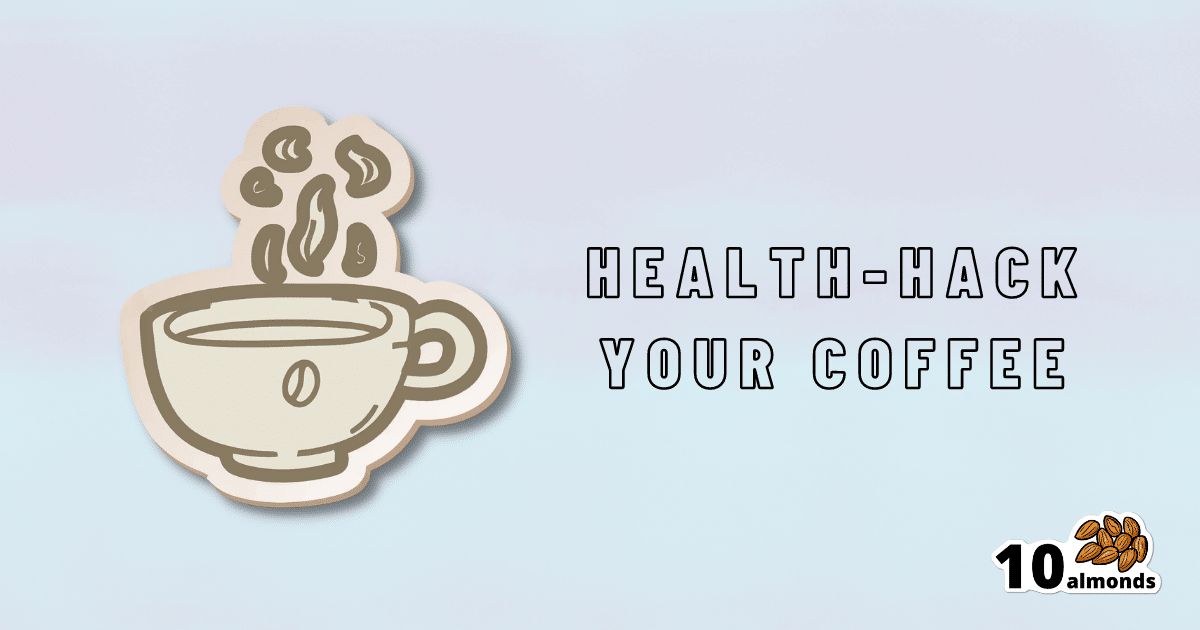Make Your Coffee Heart-Healthier!
Health-Hack Your Coffee: Tips for a Healthier Cup. Not all coffees are equal. Filter coffee is recommended to reduce cafestol levels. Consider adding l-theanine for cognitive benefits. Enjoy!

Health-Hack Your Coffee
We have previously written about the general health considerations (benefits and potential problems) of coffee:
The Bitter Truth About Coffee (or is it?)
Today, we will broadly assume that you are drinking coffee (in general, not necessarily right now, though if you are, same!) and would like to continue to do so. We also assume you’d like to do so as healthily as possible.
Not all coffees are created equal
If you order a coffee in France or Italy without specifying what kind, the coffee you receive will be short, dark, and handsome and without sugar. Healthwise, this is not a bad starting point. However…
- It will usually be espresso
- Or it may be what in N. America is called a French press (in Europe it’s just called a cafetière)
Both of these kinds of coffee mean that cafestol, a compound found in the oily part of coffee and which is known to raise LDL (“bad” cholesterol”), stays in the drink.
Read: Cafestol and Kahweol: A Review on Their Bioactivities and Pharmacological Properties
Also: Cafestol extraction yield from different coffee brew mechanisms
If you’re reading that second one and wondering what a mocha pot or a Turkish coffee is, they are these things:
- Mocha pot: a stovetop device used for making espresso without an espresso machine
- Turkish coffee pot: also a stovetop device; this thing makes some of the strongest coffee you have ever encountered. Turks usually add sugar (this writer doesn’t; but my taste in coffee been described as “coffee like a punch in the face”)
So, wonderful as they are for those of us who love strong coffee, they also produce the highest in-drink levels of cafestol. If you’d like to cut the cafestol (for example, if you are keeping an eye on your LDL), we recommend…
The humble filter coffee
Whether by your favorite filter coffee machine or a pour-over low-tech coffee setup of the kind you could use even without an electricity supply, the filter keeps more than just the coffee grinds out; it keeps the cafestol out too; most of it, anyway, depending on what kind of filter you use, and the grind of the coffee:
Physical characteristics of the paper filter and low cafestol content filter coffee brews
What about instant coffee?
It has very little cafestol in it. It’s up to you whether that’s sufficient reason to choose it over any other form of coffee (this coffee-lover could never)
Want to make any coffee healthier?
This one isn’t about the cafestol, but…
If you take l-theanine (see here for our previous main feature about l-theanine), the l-theanine acts as a moderator and modulator of the caffeine, amongst other benefits:
The Cognitive-Enhancing Outcomes of Caffeine and L-theanine: A Systematic Review
As to where to get that, we don’t sell it, but here’s an example product on Amazon 😎
Enjoy!
Share This Post
Learn To Grow
Sign up for weekly gardening tips, product reviews and discounts.




